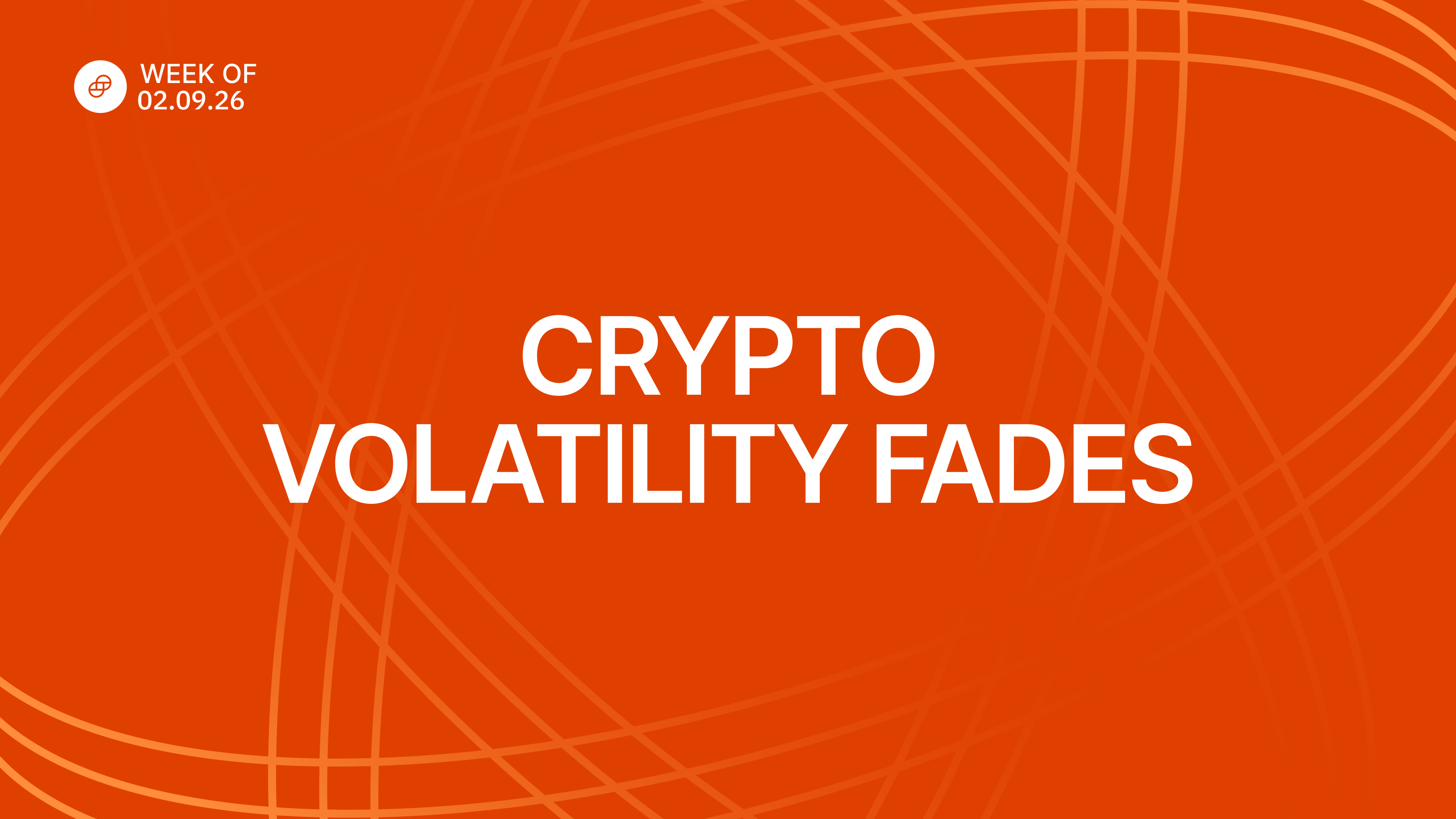JUN 02, 2025
Bitcoin 2025 Recap: Gemini Founders Offer Keynote on Crypto’s Future, Vice President JD Vance Backs Stablecoin Legislation, & Michael Saylor Talks Strategy

Crypto enthusiasts from across the globe gathered in Las Vegas this week for the industry’s annual conference for a series of keynote discussions and updates on the state of the digital asset ecosystem.
A year after President Donald Trump spoke as a candidate at the conference in Nashville, Bitcoin 2025 drew a record 35,000-plus attendees to the Venetian Hotel, reflecting renewed investor enthusiasm as the administration aims to make the United States the crypto capital of the planet.
The event again had a political flavor, with Vice President JD Vance among the keynote speakers, but also included Gemini founders Cameron and Tyler Winklevoss and other digital asset luminaries touching on a range of recent events that have helped push bitcoin to near all-time highs.
A few highlights from the event:
Winklevoss Twins Talk Operation Chokepoint 2.0, Trump, and Explain Why Crypto is Just Getting Started
Gemini co-founders Cameron and Tyler Winklevoss joined David Sacks, the White House crypto and AI czar, for a wide-ranging panel discussion Tuesday about their experience overcoming a hostile political environment toward crypto, the industry’s recent progress under President Trump, and their vision crypto policy moving forward.
“We were losing a bank account every other week in the year 2023, and we were down to literally our last bank account for wires and our last bank account for ACH,” Cameron Winklevoss said. “If we had lost either one of those it would have been game over.”
The turning point came in 2024 when Sacks and fellow venture capital Chamath Palihapitiya famously held a donor event for President Trump in San Francisco. Rather than being greeted with protests, Sacks said the streets were lined with supporters, prompting Trump to ask if he was in the right city. The rally and resulting mood at the dinner marked a stark difference from the previous four years when the SEC took a regulation by enforcement to digital asset companies.
“It’s easy to forget how bleak it was,” Tyler Winklevoss said. “There’s the war on crypto. There’s Operation Chokepoint 2.0. You and (Palihapitiya) courageously hosted a dinner for President Trump at your house in SF. In the heart of enemy territory. And I think that started a preference cascade in Silicon Valley.”
During his panel discussion, Sacks pulled out a notecard to recap the administration’s pro-crypto actions during the first five months in office, including prohibiting central bank digital currencies, ending Operation Chokepoint 2.0, launching a Strategic Bitcoin Reserve, as well as rescinding SAB 121 which made banks list crypto as liabilities on their balance sheet.
On Tuesday, Tyler Winklevoss said the next step he’d love to see is if the US government would start proactively acquiring bitcoin, drawing cheers from the audience. Sacks said it’s a possibility if the Treasury can figure out tax-neutral ways to do it.
“We feel like we’ve been building into a headwind for a decade,” Cameron Winklevoss said. “Now, finally we’re building with a bit of a tailwind… orange is the new gold. Bitcoin is gold 2.0 and that’s been true since day one. A , that’s exciting. But if you take 21 million into the above ground marketplace of gold, really it should be a million dollars a coin, easily and then some.
“We often talk about baseball games being the metric for how early things are,” he added. “We are literally in the first inning, and let me tell you, this game is going to overtime.”
JD Vance Reiterates Support for Crypto Legislation
Vice President JD Vance, a long-time crypto HODLer, joined the event Wednesday to encourage crypto supporters to stay politically engaged and continue to put pressure on lawmakers to pass stablecoin legislation, known as the GENIUS Act, and a separate bill offering a full regulatory framework for digital assets.
“We have a once-in-a-generation opportunity to unleash innovation and use it to improve the lives of countless American citizens,” Vance said. “But if we fail to create regulatory clarity now, we risk chasing this $3 trillion industry offshore in search of a friendly jurisdiction.”
The GENIUS Act recently cleared a major hurdle in the US Senate, paving the way for a potential vote. If it passes the chamber, it will go through the reconciliation process in the US House of Representatives and will need to pass there with a simple majority before President Trump can sign it into law.
During his speech, Vance reiterated that a regulated stablecoin market can help promote US dollar dominance. Stablecoins are fiat-backed digital currencies backed by short-term treasury bonds. The stablecoin market has exploded over the past few years, playing an increasingly influential role in digital finance, with Citi estimating the potential market could grow to as high as $3.7 trillion by 2030.
“In this administration, we do not think that stablecoins threaten the integrity of the U.S. dollar. Quite the opposite,” Vance said. “We view them as a force multiplier of our economic might.”
Vance also offered a special shout out to the Winklevoss twins during the address.
“You chose to speak up, and you chose to get involved, and I believe you changed the direct trajectory of our country because of it,” Vance said.
Saylor Holds Court While Strategy Continues to Stack Bitcoin
Bitcoin advocate Michael Saylor has reshaped the crypto ecosystem with Strategy, his software company that has raised debt and equity to amass more than 580,000 BTC, about 3% of the total supply. Strategy stock has subsequently soared as a result while bitcoin prices have moved higher, making Saylor one of the wealthiest crypto investors on the planet.
Saylor’s bitcoin treasury accumulation program at Strategy has set off a wave of imitators, with an increasing number of corporations now reportedly opting to buy bitcoin and hold it on their respective balance sheets.
Investors have asked Saylor repeatedly about the risk of issuing debt to buy bitcoin, with skeptics wondering if a drop in bitcoin prices would set off a cascading sell-off that would cripple the company’s stock price. In Las Vegas, Saylor was asked what would happen if Strategy’s multiple to net asset value (mNav) dropped below $1, repeating what happened during the bear market.
Saylor countered by noting that unlike closed-ended ETFs such as Grayscale Bitcoin Trust, Strategy has the ability to quickly restructure its capital structure because it offers STRK and STRF, a pair of Series A perpetual preferred stocks which typically offer investors higher dividends and more price stability.
“If someone were stupid enough to short my stock to $1, I would sell $1 billion of the preferred stock and buy back the common stock,” he said. “And I would just recapitalize the company. Then the common stock would fly through the roof and they would be complaining.”
Nearly One in Four Now Own Crypto
To kick off the conference last week, , which offers a comprehensive breakdown of investor awareness around cryptocurrencies, motivations for owning and trading, crypto ETF adoption, the impact of the Trump administration’s policies on crypto, and more.
In 2025, the survey showed global adoption of crypto grew in all geographies. In 2024, one in five (21%) respondents in the United States, United Kingdom, France, and Singapore reported owning crypto. In 2025, that figure grew to nearly one in four (24%).
A few more key findings:
- Europe leads the way in growing crypto ownership: In 2025, 24% of respondents in the UK said they were invested in cryptocurrency, up from 18% in 2024. It was the biggest year-over-year jump of any of the nations surveyed. In France, 21% of respondents reported owning crypto, up from 18% in 2024. In the United States, adoption grew from 20% to 22%, and in Singapore from 26% to 28%.
- Nearly a quarter (23%) of non-owners in the US said President Trump launching a Strategic Bitcoin Reserve increased their confidence in the value of cryptocurrency: This sentiment was echoed globally by non-owner respondents in the UK and Singapore, where about one in five (21% and 19%, respectively) non-owners said the same.
- Half of Gen Z and Millennials invest in crypto: Half of Millennial and Gen Z respondents globally (50%) said they either currently own crypto or have in the past, at 52% and 48%, respectively.
RELATED ARTICLES

WEEKLY MARKET UPDATE
FEB 12, 2026
US Jobs Report Beats Expectations, BlackRock Launches Tokenized Treasury Fund On Uniswap, and Crypto Lobby Meets To Solve CLARITY Act Impasse

COMPANY
FEB 10, 2026
Gemini Staking Is Now Available for New York Customers

COMPANY
FEB 05, 2026